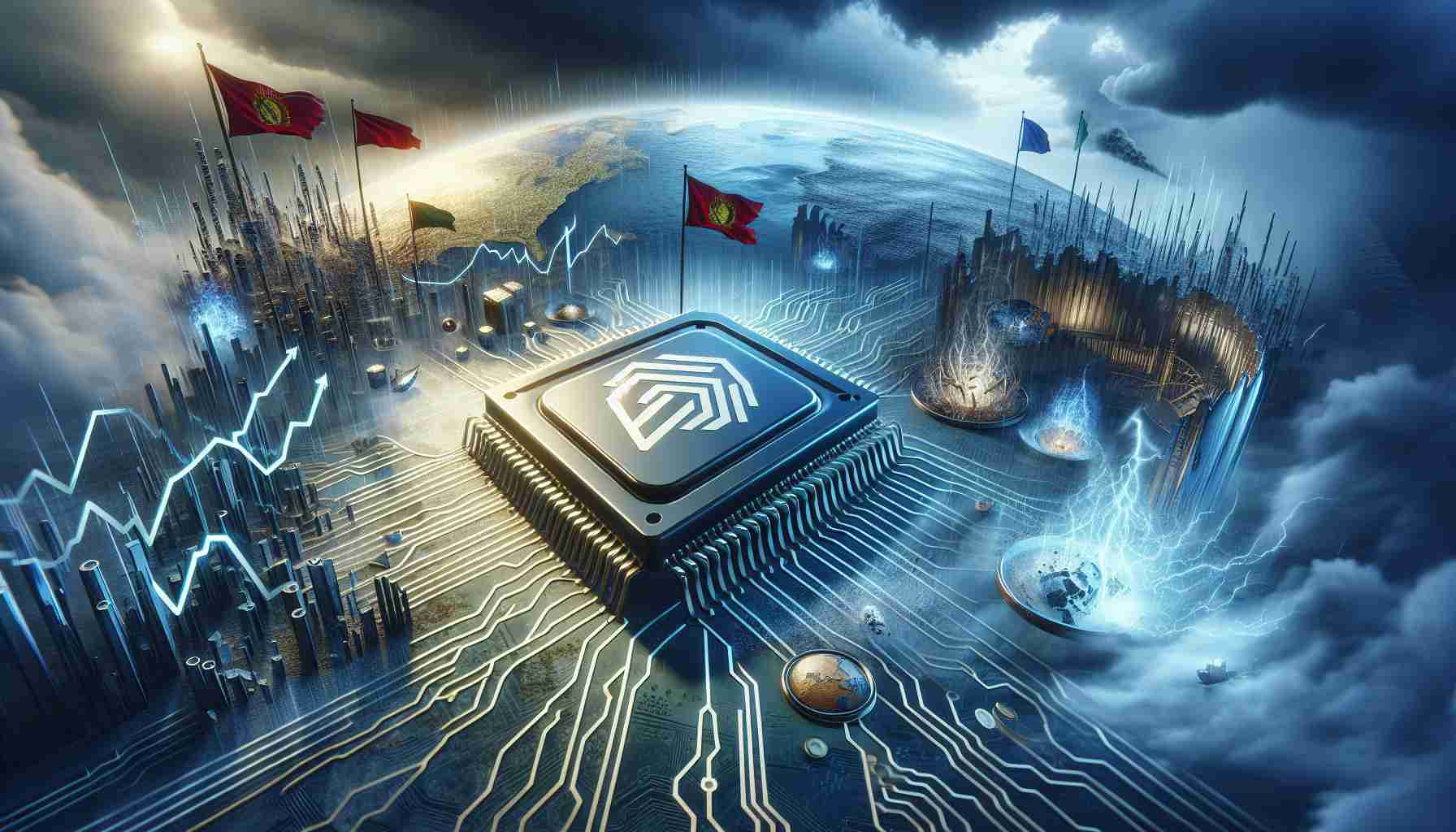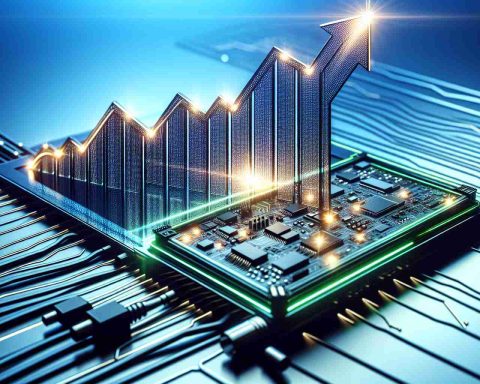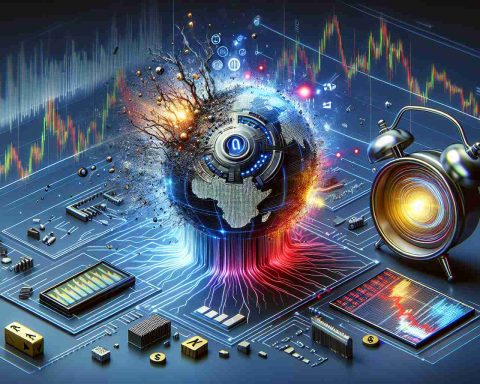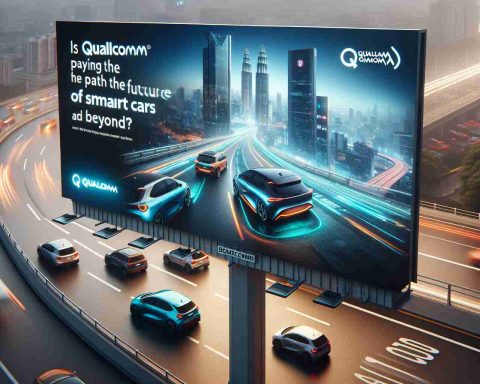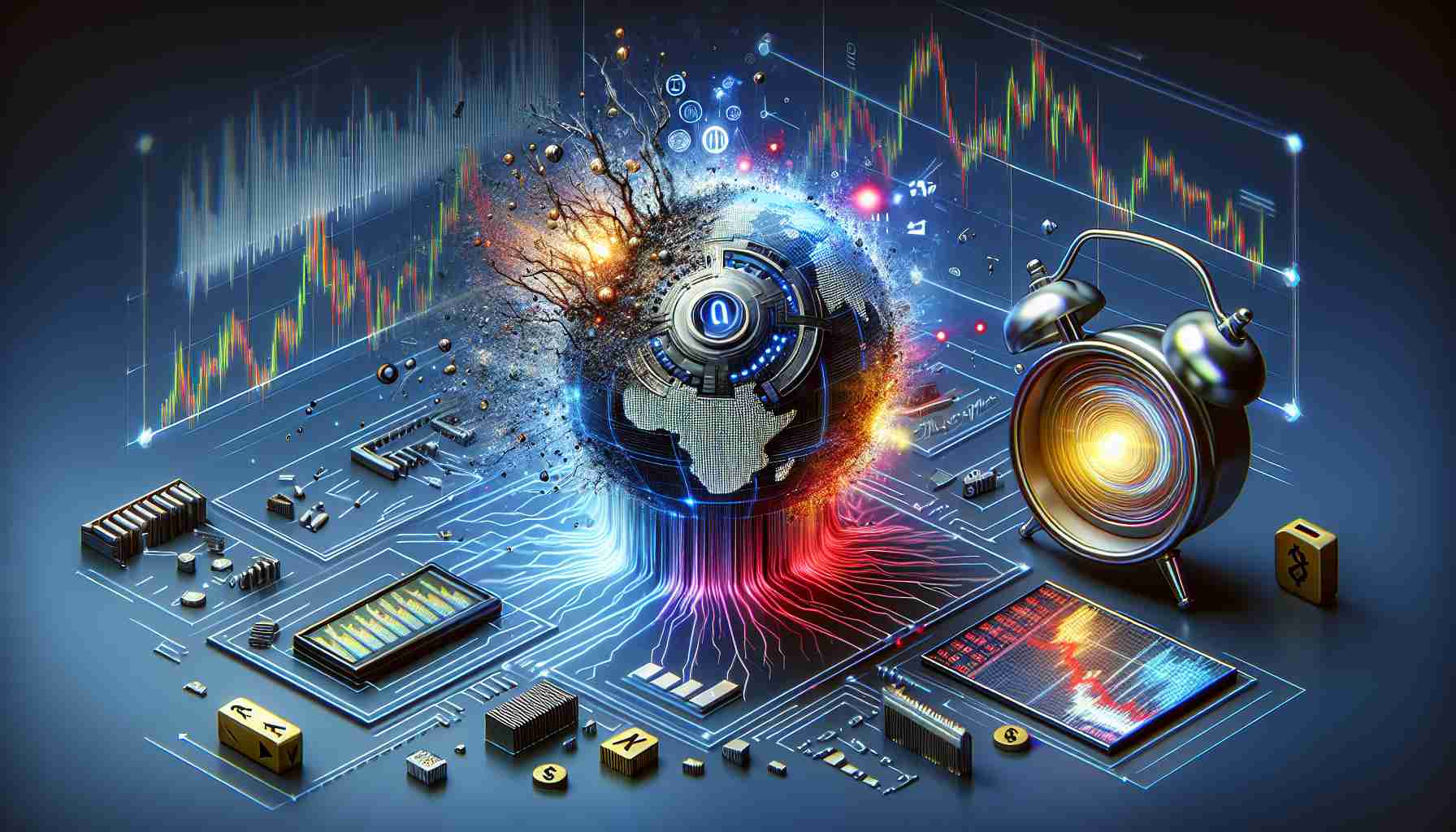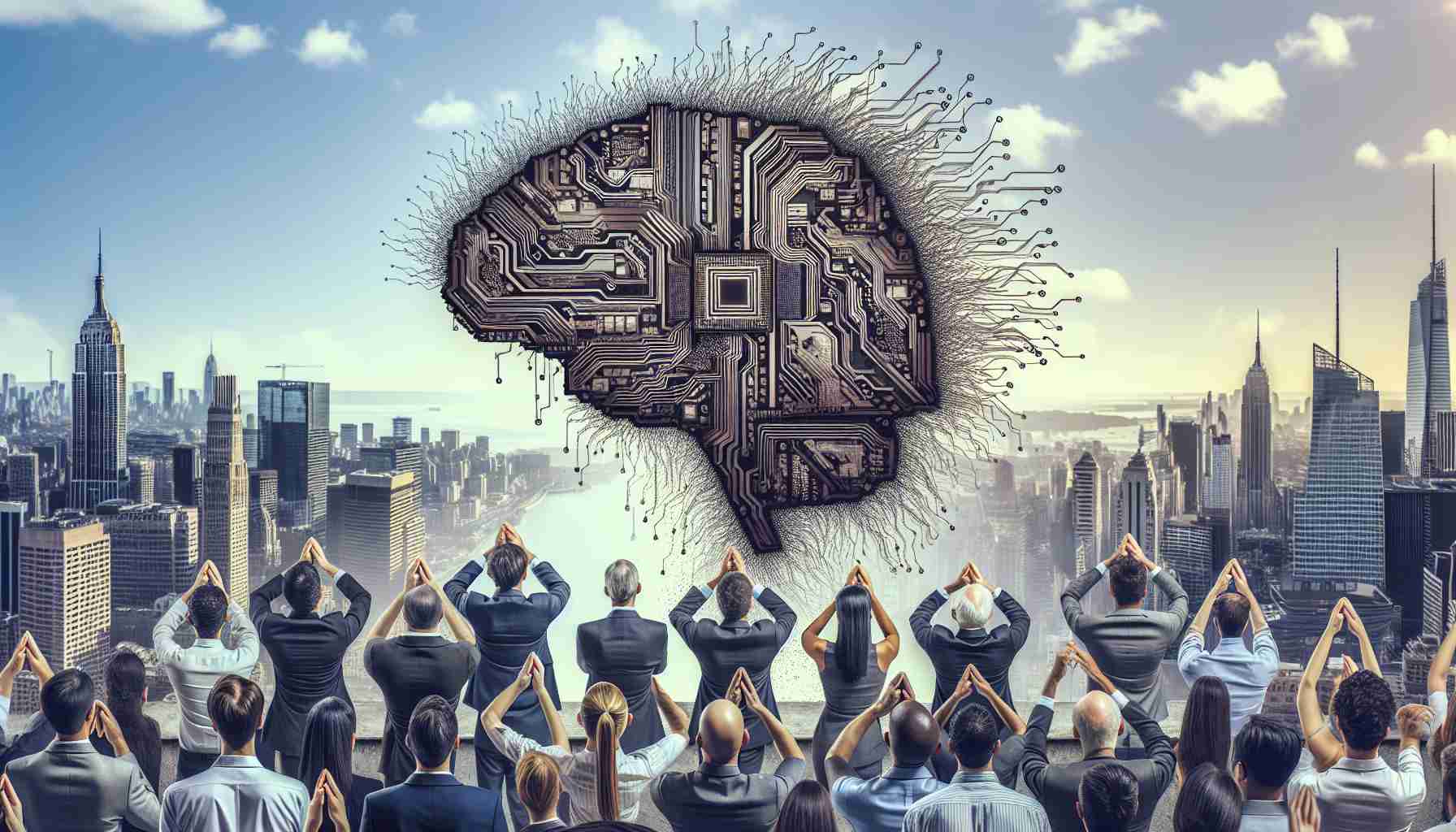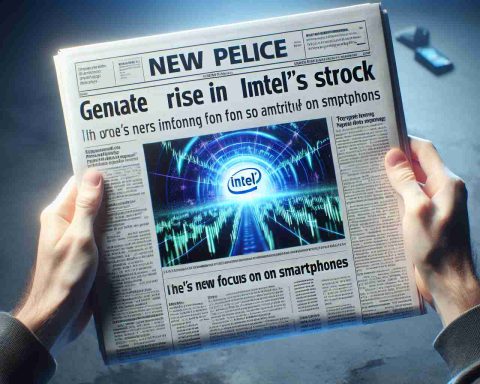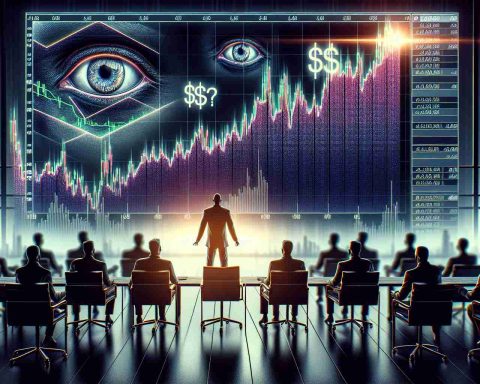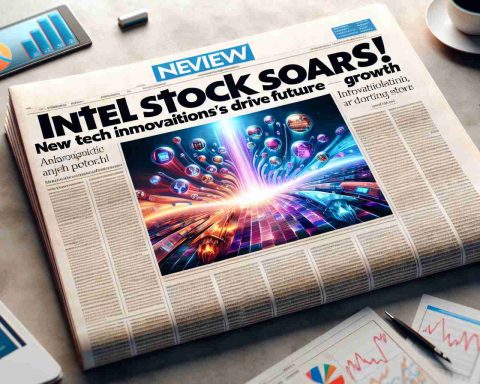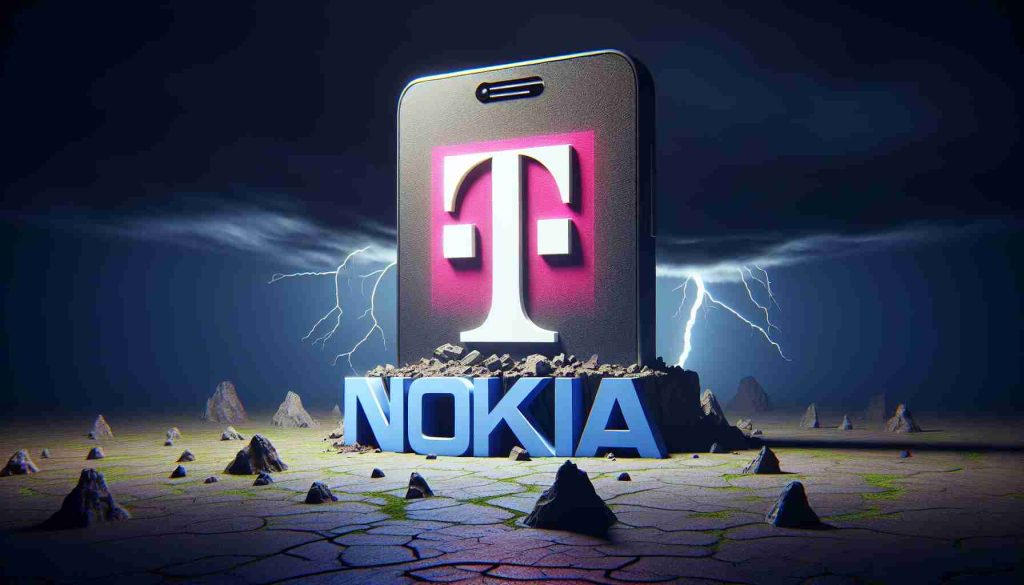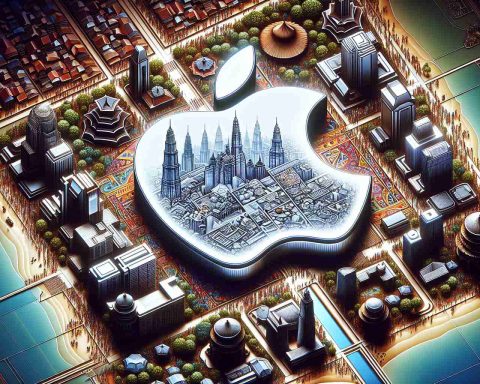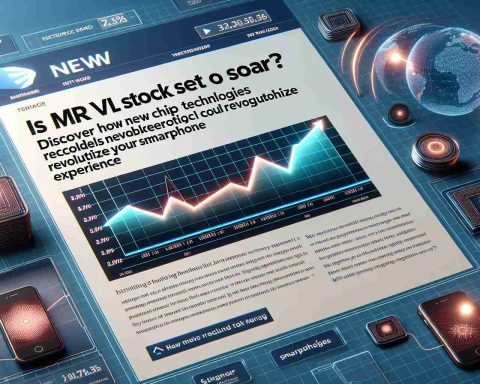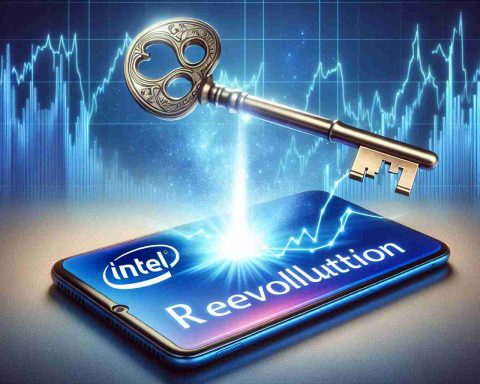US markets saw a surprising turnaround on Tuesday, as major indices bounced back from an early slump triggered by renewed geopolitical worries. Despite a morning dip, the Nasdaq and S&P 500 ended the day higher, although the Dow Jones Industrial Average closed over 100 points down.
Early investor anxiety was fueled by escalating tensions in Eastern Europe, particularly Russia’s response to a Ukrainian strike using sophisticated US missiles. This geopolitical upheaval initially drove investors toward traditional safe havens, temporarily driving up gold and bond prices. However, as the day progressed, focus shifted back to corporate earnings, primarily the upcoming Nvidia report.
Nvidia’s much-anticipated third-quarter earnings report is set to be released following the market close on Wednesday. Analysts have high expectations, forecasting a significant 83% increase in year-over-year revenue, amounting to $33 billion. Despite recent concerns over overheating issues with Nvidia’s new Blackwell chip, market sentiment remains optimistic regarding the company’s next moves in artificial intelligence technology.
With Wall Street maintaining a bullish stance, traders are keenly watching for Nvidia’s guidance and any potential announcements regarding its cutting-edge GPUs. Positive outcomes could catalyze another surge in tech stocks, though any negative news might trigger rapid selling.
On the commodities front, WTI crude oil nudged up by 0.67% to $69.59 a barrel, while Brent crude slightly decreased to $73.37. Gold prices increased by 0.81%, hitting $2,635.7 an ounce. The 10-year Treasury yield saw a minimal dip, and Bitcoin managed a minor rise, momentarily surpassing a recent high.
Will the Tech Sector Propel New Heights Amidst Global Uncertainty?
In recent times, the technological sector has experienced tumultuous changes and unprecedented growth, impacting economies and individuals worldwide. Let’s delve into some lesser-known insights and controversies that could potentially reshape how tech advances influence our lives.
The Impact of Tech Growth on Everyday Lives
Technological innovation, particularly in artificial intelligence (AI), has been a catalyst for progress across various industries. With Nvidia at the forefront, advancements in AI technology promise to revolutionize sectors like healthcare, finance, and automotive. However, the push for AI dominance sparks debates concerning data privacy, ethical use, and job displacement due to automation.
Interesting Facts
Did you know that the rise of AI could increase global GDP by up to $15.7 trillion by 2030? This highlights AI’s transformative potential, positioning it as both a lucrative investment and a topic of ethical contemplation.
Another intriguing facet is the implicit dependence on semiconductors. Companies like Nvidia dominate this space, which plays a crucial role in everything from smartphones to electric vehicles, underscoring the semiconductor shortage that had previously disrupted industries.
Controversies Surrounding AI and Technology
Despite progress, AI development raises ethical dilemmas. Facial recognition technology, for instance, has benefitted public safety but raises concerns over surveillance and personal freedoms. Similarly, AI algorithms can perpetuate biases unless designed with fairness in mind.
Moreover, geopolitical tensions might inhibit international cooperation in tech advancements, limiting potential collaborations in AI research and development. How countries manage these relationships will influence not just economies, but also advancements in technology, privacy regulations, and security protocols.
Advantages and Disadvantages of the Tech Surge
One key advantage includes enhanced productivity, with automation freeing up human workers for more strategic tasks. Startups and established industries alike can leverage AI to innovate product offerings and streamline operations.
Conversely, the increasing reliance on technology can widen socioeconomic disparities. Those lacking access to digital tools might become marginalized as sectors evolve, exacerbating inequality in digital literacy and opportunities.
Asking the Right Questions
How will tech companies like Nvidia balance innovation with ethical responsibility? Can advances in AI be harnessed to narrow—not widen—the gap between technology haves and have-nots? These questions remain at the forefront as we navigate a rapidly evolving digital landscape.
Final Thoughts
As the world watches Nvidia’s upcoming announcements with bated breath, the ripple effect of these technological strides will be far-reaching. Communities and countries must grapple with both opportunities and challenges, ensuring that the rewards of technological progress are equitably shared.
For more on technology’s impact, visit Wired and TechCrunch.

